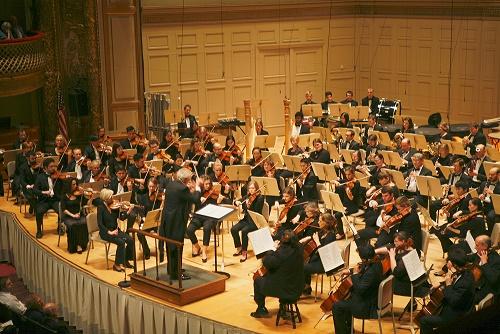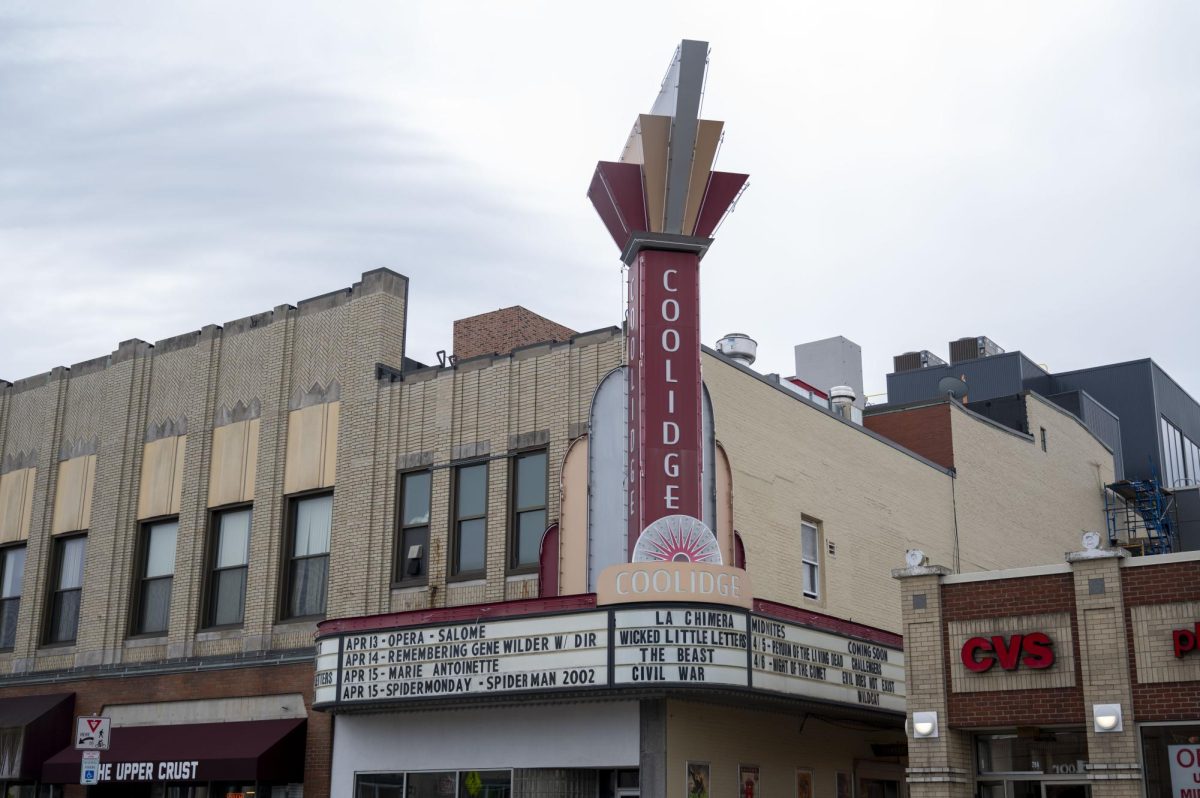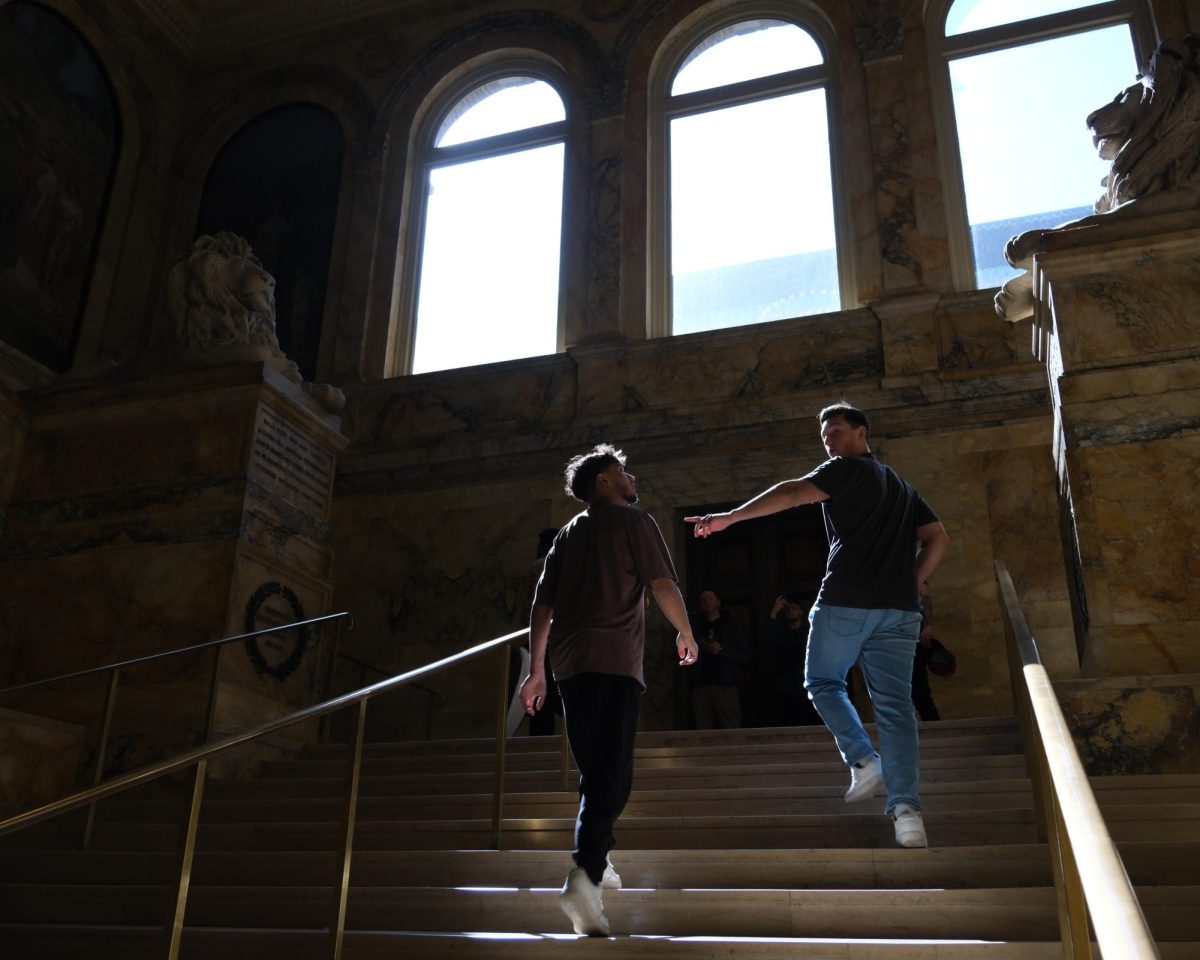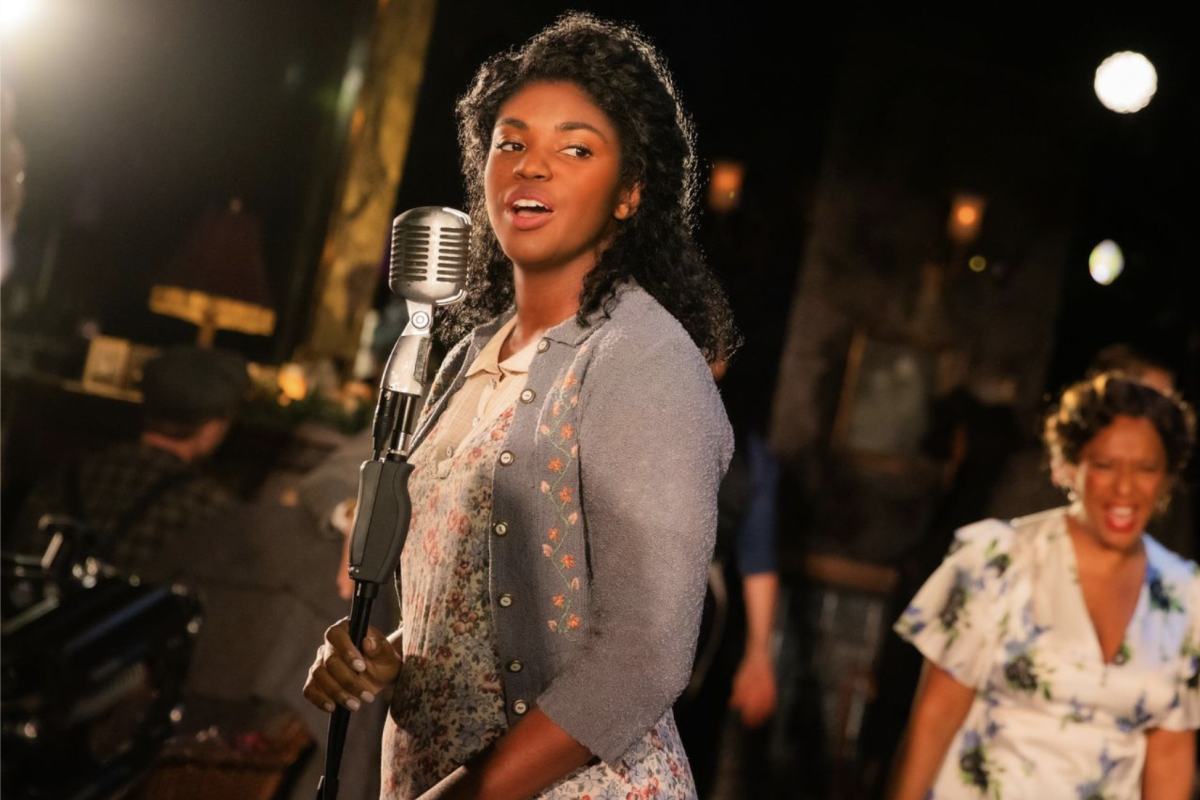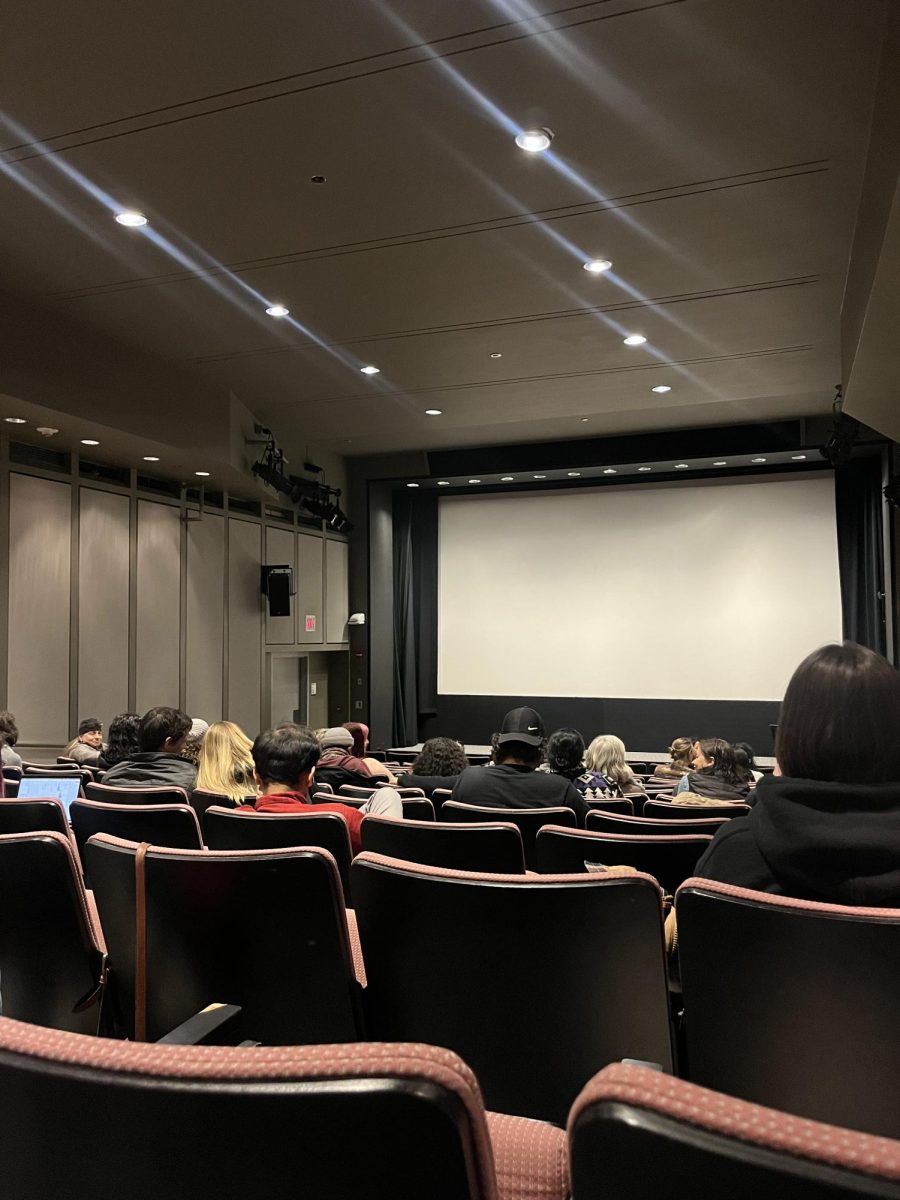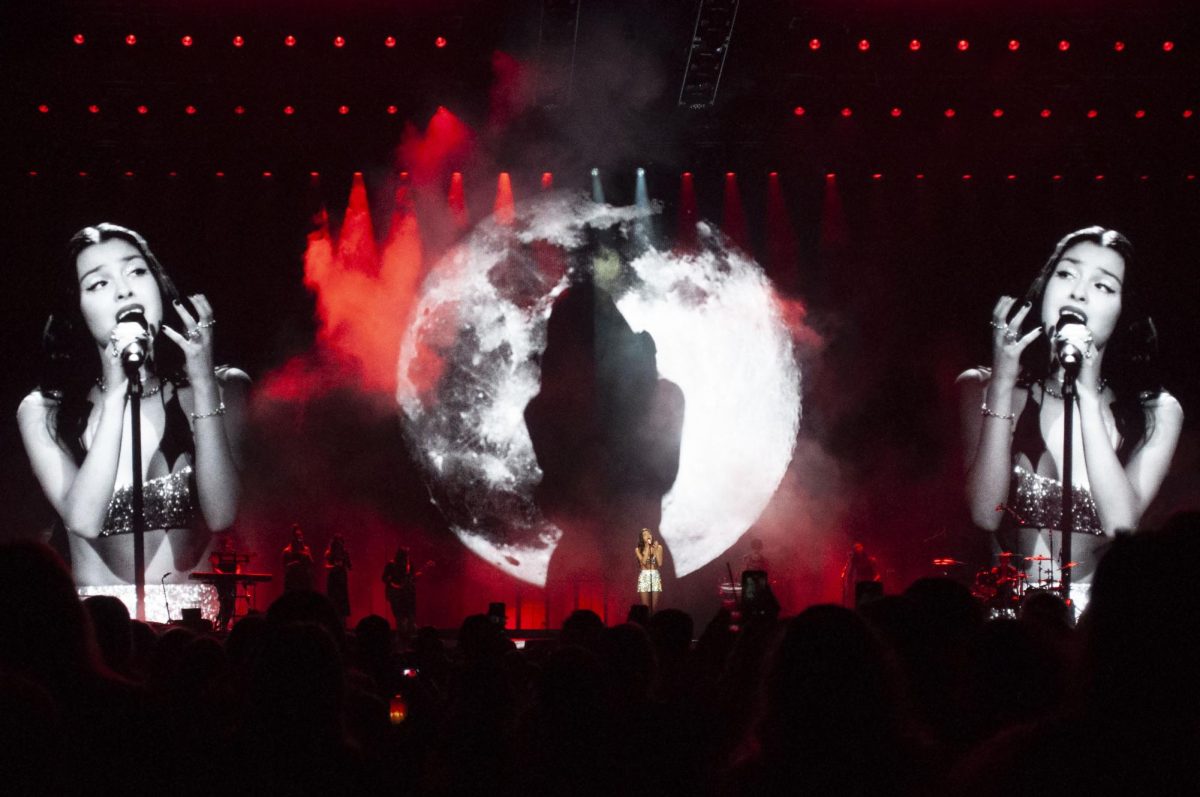By Pamela Stravitz, news correspondent
Two colossal compositions were matched with an orchestra of prodigious proportion. On Thursday, Oct. 22, the 113-member Boston Philharmonic Orchestra (BPO) filled Symphony Hall to play selected pieces in “An Evening of Epic Music.”
The performance included both Richard Strauss’ “Also sprach Zarathustra” and Gustav Holst’s “The Planets,” which were performed in true epic standard by the massive orchestra led by conductor Benjamin Zander.
“These two pieces stare at each other over intermission,” Zander said. “‘Also sprach Zarathustra’ by Strauss and ‘The Planets’ of Holst are two of the grandest, most powerful, most moving, most beautiful pieces of music ever written.”
“Also sprach Zarathustra” is best known for the iconic intro of the 1968 classic film “2001: A Space Odyssey.” The colossal brass climax is familiar to even the most unknowledgeable of movie-watchers.
However, there is more to the story. The composition is based on writer Friedrich Nietzsche’s poem “Thus Spoke Zarathustra,” which tells of the rebirth and trying journeys of a man.
An hour before the show, symphony enthusiasts gathered in the music hall to hear what Zander thought about the two pieces—what they mean and why they were written.
Sometimes, he would explain and then let a theme hover over the crowd, eventually filling the silence with melodies of vocalized random sounds like “doo,” “bee” and “ta.”
“It’s not set in outer space, but in the inner space of man – the psyche,” he said, referring to “Also sprach Zarathustra.”
“The Planets,” on the other hand, represents outer space itself, characterizing the significance of the solar system.
The seven movements of Holst’s piece begin with Mars, the Bringer of War, and end with Neptune, during which the sounds of a fading chorus echoed throughout Symphony Hall to signal the finale of the composition.
After several tense seconds of silence, Zander faced the audience and gestured for each performer to stand and bow. At that point, the sheer mass of the orchestra showed.
Contrary to popular belief, most of these performers are more than just musicians. According to Zander, the orchestra is comprised of doctors, teachers and graduate students.
One such musician is violinist Kathy Sheperd, an expressive therapy specialist who has been playing with Zander for over 30 years.
Her brother-in-law, Steve Strand, 55, of San Diego said, “[Zarathrustra] was all new, but it kept coming back to the same theme. And the first violin solo was amazing.”
In his 37 years as conductor of the BPO, Zander has directed a mass of pieces, but he knew this performance would be unlike any performed in Boston before – “Also sprach Zarathustra” and “The Planets” had never before been played together in the city.
However, even with the pressure of being the first, Zander still finds ways to introduce fun into the performance.
He said that during rehearsal, if someone messed up, they threw their hands in the air and proclaimed “How fascinating!”
“Just because the piece is serious doesn’t mean we have to be dark,” he said. “People love to play in this orchestra. Mistakes keep us light on our feet and light in our hearts.”
This fun is just what Zander wants to express to his audience, especially young adults. Boston is the only city in the world to have two main orchestras: Boston Symphony Orchestra and Boston Philharmonic Orchestra.
Zander said he once read in an article about the two orchestras, “The difference between between the Boston Symphony Orchestra and the Boston Philharmonic Orchestra is the difference between a marriage and an illicit affair.”
In the end, Zander said the music would be nothing without people to listen.
“It’s all for the audience,” he said. “Everything I do is for them.”
Photo by Kyle Hemingway Dickinson, courtesy Opus Affair







